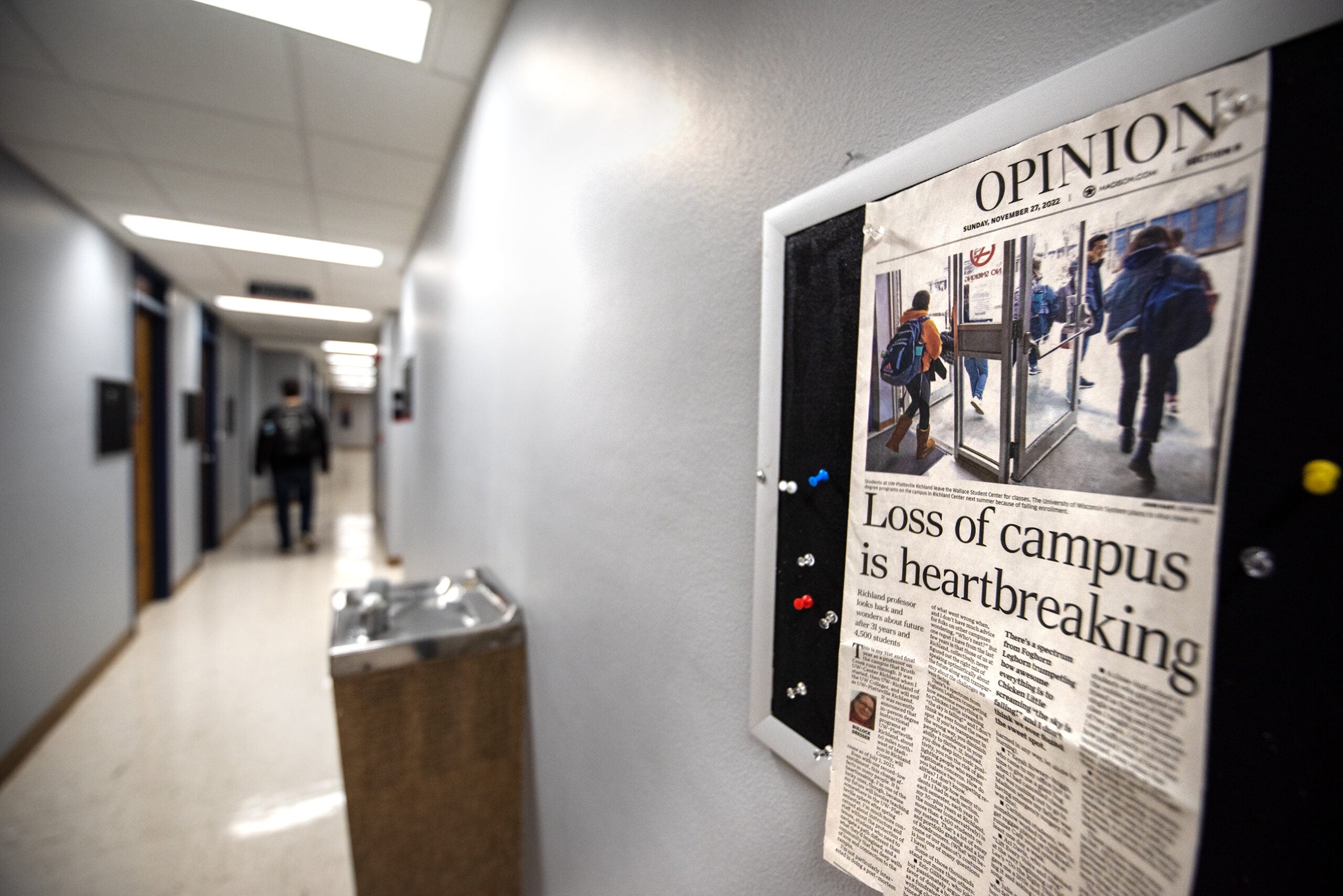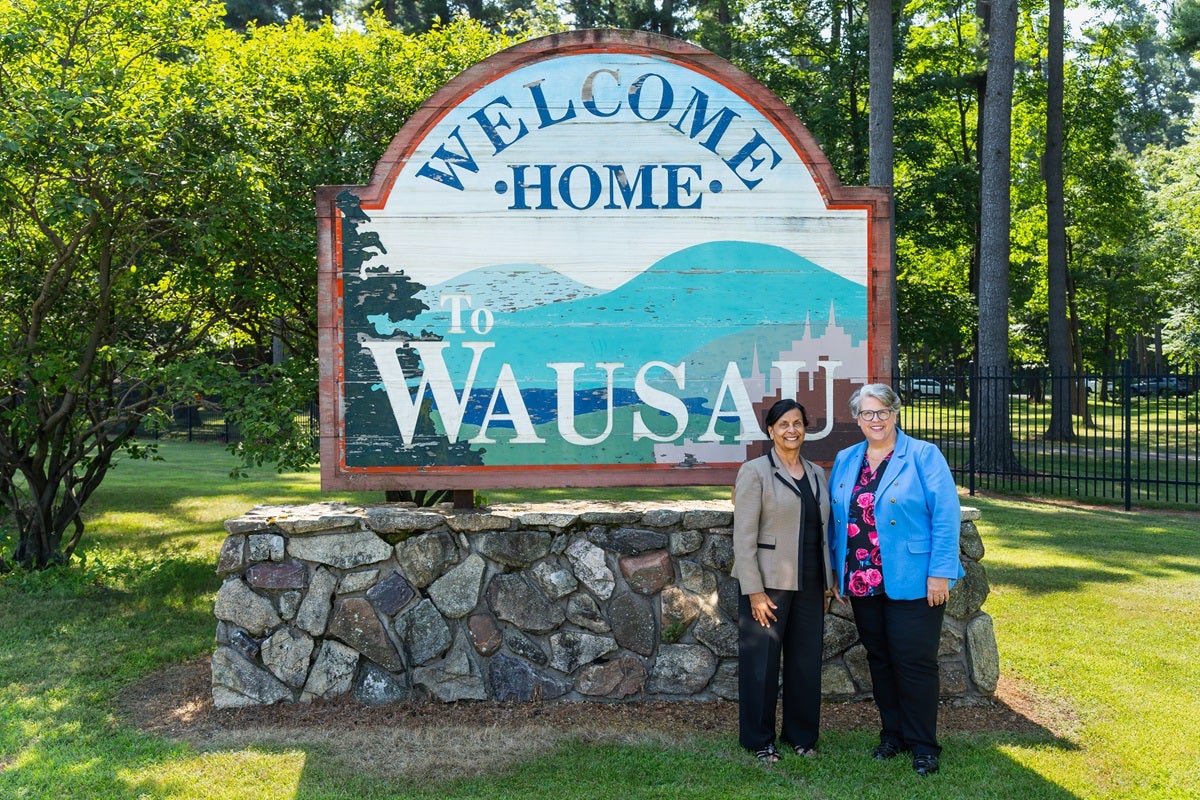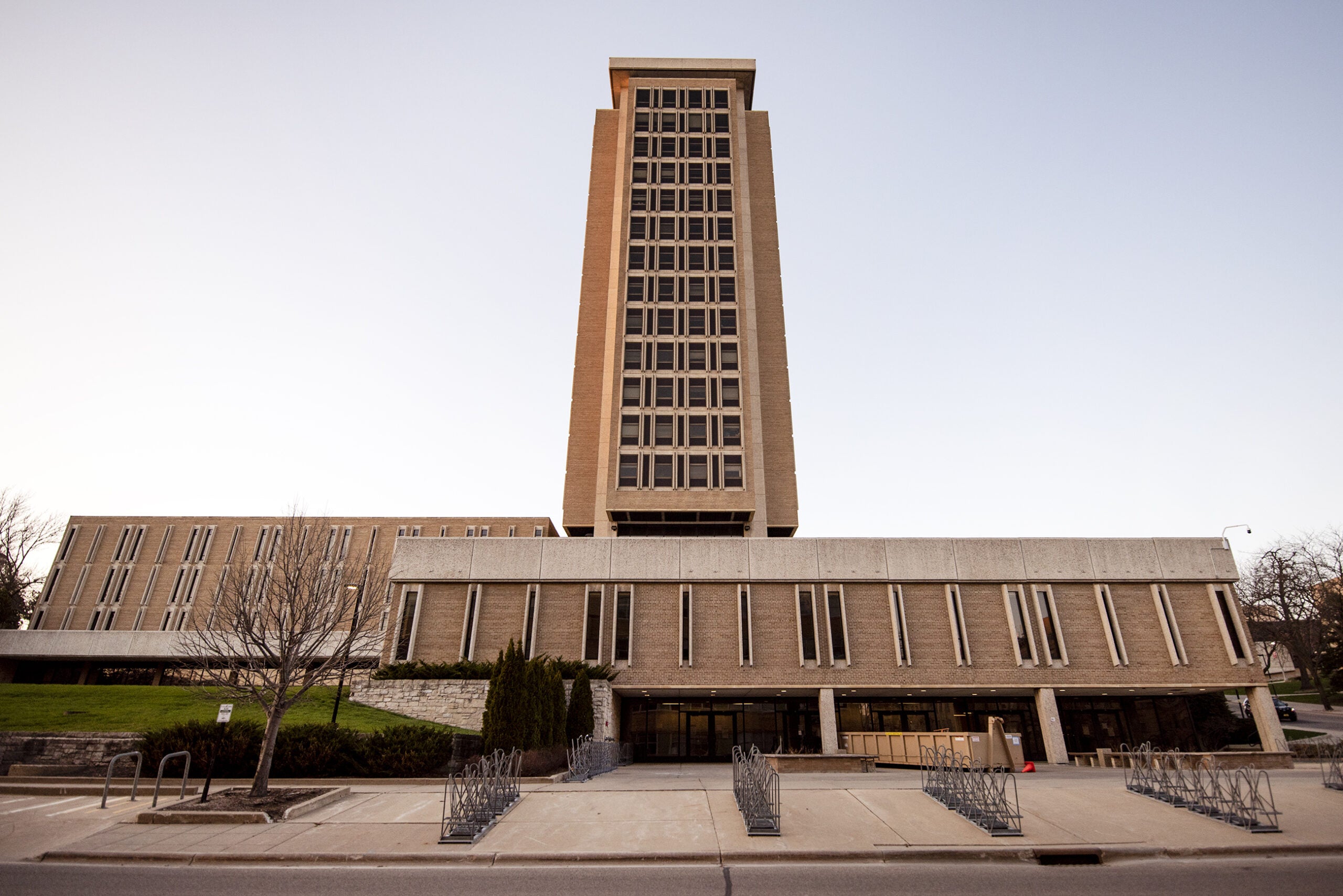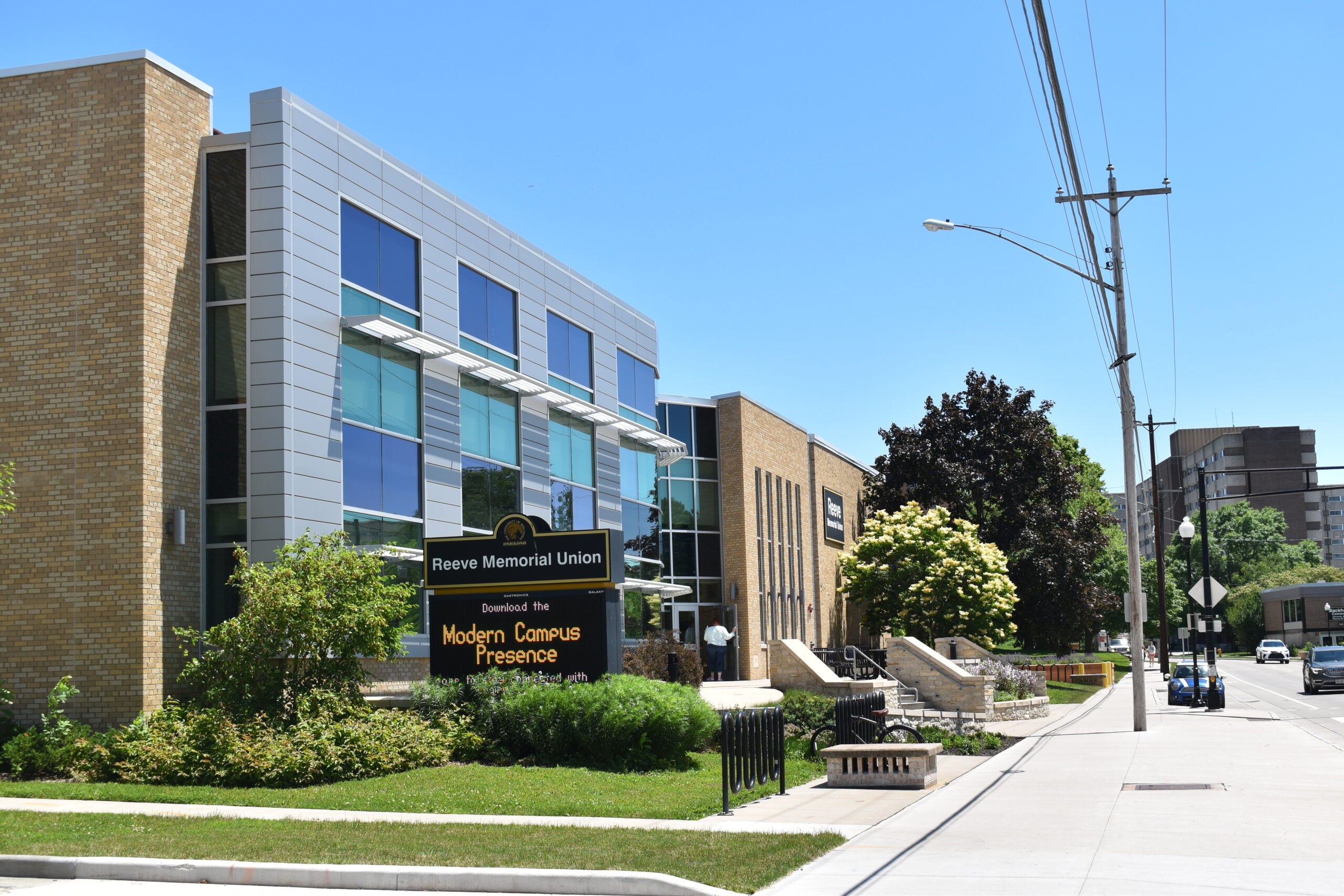University of Wisconsin System President Jay Rothman defended campus diversity programming this week as Republican state lawmakers consider cutting university funding by around $32 million because of opposition to those efforts.
During a State Senate Committee on Universities and Revenue hearing Monday that focused on the future of higher education in Wisconsin, Rothman reiterated his support for diversity, equity and inclusion initiatives on campuses. He said those efforts are aimed at ensuring universities are welcoming and students from all backgrounds feel they belong.
The hearing came two days after Assembly Speaker Robin Vos, R-Rochester, told the audience at the Republican Party of Wisconsin’s state convention that DEI stands for “division, exclusion and indoctrination.” Vos said “in many ways” America has achieved a colorblind society. He said that’s something Black, white, gay, Hispanic, rich and poor people should be proud of.
News with a little more humanity
WPR’s “Wisconsin Today” newsletter keeps you connected to the state you love without feeling overwhelmed. No paywall. No agenda. No corporate filter.
“But when we get to kids, when we get to the university, we begin to say that DEI is the new religion for the left,” Vos said. “They don’t go to church on Sunday, but they have no problem using taxpayer dollars to evangelize on every college campus across the state. We have to stop it, put our foot down and not allow it to continue.”
At Monday’s hearing, State Sen. Steve Nass, R-Whitewater, also voiced skepticism about the UW’s DEI efforts.
“I know the chancellor at UW-Whitewater is all over DEI, and that’s his main thrust,” Nass said. “Unfortunately, it’s not other items like graduation rates and cost and classes that perhaps should be eliminated.”
Nass insinuated that UW campuses, specifically UW-Whitewater, are enrolling students that campus leaders “know are not going to get out the other side” or “aren’t capable of that level of work in a college campus” and saddling them with student debt.
UW System President Jay Rothman pushed back, saying UW-Whitewater Chancellor Corey King, who started his role March 1, is focused on financial sustainability at his campus. Rothman then asked Nass if the UW should continue pursuing a women in STEM (Science, Technology, Engineering and Mathematics) program or others aimed at enrolling more veterans and first-generation students.
“Are we really not going to have programming to assist our first generation students who have more courage than I could possibly imagine to take that plunge?” Rothman said. “Those are all issues that DEI cover. I think those are important things not only for the state to ensure that we have enough graduates coming in, but it’s also that those are the right things to do for society.”
Nass told Rothman he thinks those types of DEI programs “are cover for what else is going on” and mentioned comments from parents angered about a UW-Madison student orientation that he said spent 25 minutes on voter registration.
The rest of Monday’s discussion focused on state funding for UW campuses and Wisconsin technical colleges, inflation and projected decline in the number of high school graduates. Rothman, along with UW-Milwaukee Chancellor Mark Mone and Wisconsin Technical College System President Morna Foy, said without additional investments, their institutions won’t be able to sustain current operations or meet needs of students and employers.
Foy and Waukesha County Technical College President Richard Barnhouse said they rely on a variety of funding sources like state aid, tuition and local property taxes to meet a growing and more diverse population of students seeking career training.
The tech college system requested an additional $75 million in state aid over fiscal years 2024 and 2025 expand the pool of skilled workers in Wisconsin, increase the number of minority students who graduate and increase the number of credits earned by working adults. In turn, the Republican-controlled Joint Finance Committee approved a state aid increase of around $9.4 million.
Foy told lawmakers the increase wasn’t what tech colleges hoped for as they try to improve completion rates of a diversifying student population.
“We’re in a constant evolution and all that change and all that experimentation takes resources, so we won’t be able to do as much of it as we could if we had, if we have more resources to work with,” Foy said. “I mean, that’s basically the bottom line.”
On Thursday, the Republican-led Assembly Committee on Ways and Means tacked on an amendment to an unrelated bill that would ban tech colleges from being able to use local property tax dollars to pay for operational expenses. That funding would be replaced by state aid, under the measure but would give state lawmakers much more control over tech college finances.
In a statement sent to Wisconsin Public Radio Monday afternoon, amendment author Rep. John Macco, R-Ledgeview, said Republicans with a $7 billion projected budget surplus Republicans believe “now it is only right for the government to try to reduce the tax burden on Wisconsinites.”
“Two taxes stand out as being extremely burdensome on hardworking Wisconsinites and our older population: income tax and property tax,” Macco said. “Although our income tax reform is still in the works, our property tax proposal is a good first step in reducing the crushing burden many homeowners are living with.”
Foy told WPR the measure would represent the biggest change in technical college funding in more than a century and the system. She said individual colleges are opposed to the shift.
The Joint Finance Committee has not yet taken up UW System funding as it tweaks Democratic Gov. Tony Evers’ state budget recommendations. The UW System requested a budget increase of $435 million, while Evers pared that down and recommended an increase of $306 million.
Those requests would fund a statewide tuition waiver program, pay increases for employees, additional money for agriculture programs and the state lab of hygiene.
Evers has said Vos’ plan to cut to the UW amid a projected $7.1 billion budget surplus would be “irrational” and said he’d veto the state budget if the cuts are approved by Republicans.
UW-Milwaukee Chancellor Mark Money spoke to the potential DEI budget cut to the UW System during Monday’s hearing. He said the decade-long tuition freeze that ran from 2013 through spring of this year coupled with prior UW cuts and rising inflation has left a majority of campuses with budget deficits. UW System data show 10 of 13 state universities have combined projected deficits of nearly $60 million. UW-Milwaukee’s deficit alone is expected to be $18.8 million.
Mone said his campus has cut around 600 employees since fall 2014 and plans to cut an additional $30 million from its operational budget through fiscal year 2024.
“The possible cut from UW systems being discussed would be a really challenging blow to not just UWM but really all the public universities as we really continue to graduate the workforce that is needed to meet the demand,” Mone said.
Wisconsin Public Radio, © Copyright 2025, Board of Regents of the University of Wisconsin System and Wisconsin Educational Communications Board.







